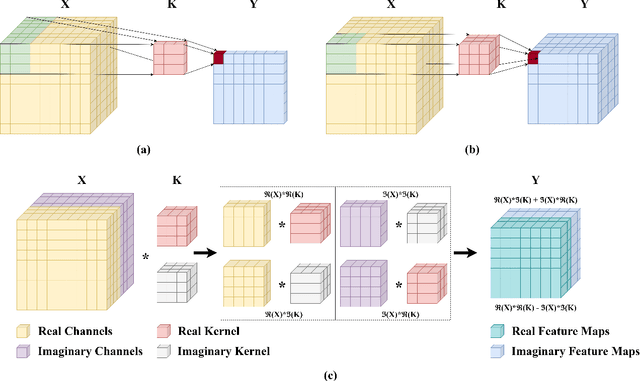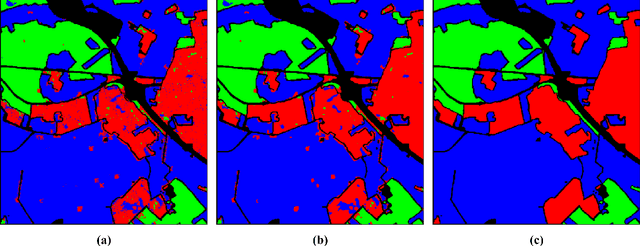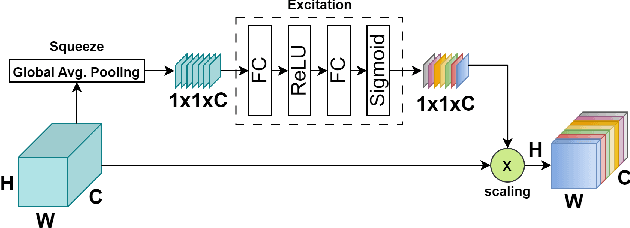SDF2Net: Shallow to Deep Feature Fusion Network for PolSAR Image Classification
Paper and Code
Feb 27, 2024



Polarimetric synthetic aperture radar (PolSAR) images encompass valuable information that can facilitate extensive land cover interpretation and generate diverse output products. Extracting meaningful features from PolSAR data poses challenges distinct from those encountered in optical imagery. Deep learning (DL) methods offer effective solutions for overcoming these challenges in PolSAR feature extraction. Convolutional neural networks (CNNs) play a crucial role in capturing PolSAR image characteristics by leveraging kernel capabilities to consider local information and the complex-valued nature of PolSAR data. In this study, a novel three-branch fusion of complex-valued CNN, named the Shallow to Deep Feature Fusion Network (SDF2Net), is proposed for PolSAR image classification. To validate the performance of the proposed method, classification results are compared against multiple state-of-the-art approaches using the airborne synthetic aperture radar (AIRSAR) datasets of Flevoland and San Francisco, as well as the ESAR Oberpfaffenhofen dataset. The results indicate that the proposed approach demonstrates improvements in overallaccuracy, with a 1.3% and 0.8% enhancement for the AIRSAR datasets and a 0.5% improvement for the ESAR dataset. Analyses conducted on the Flevoland data underscore the effectiveness of the SDF2Net model, revealing a promising overall accuracy of 96.01% even with only a 1% sampling ratio.
 Add to Chrome
Add to Chrome Add to Firefox
Add to Firefox Add to Edge
Add to Edge